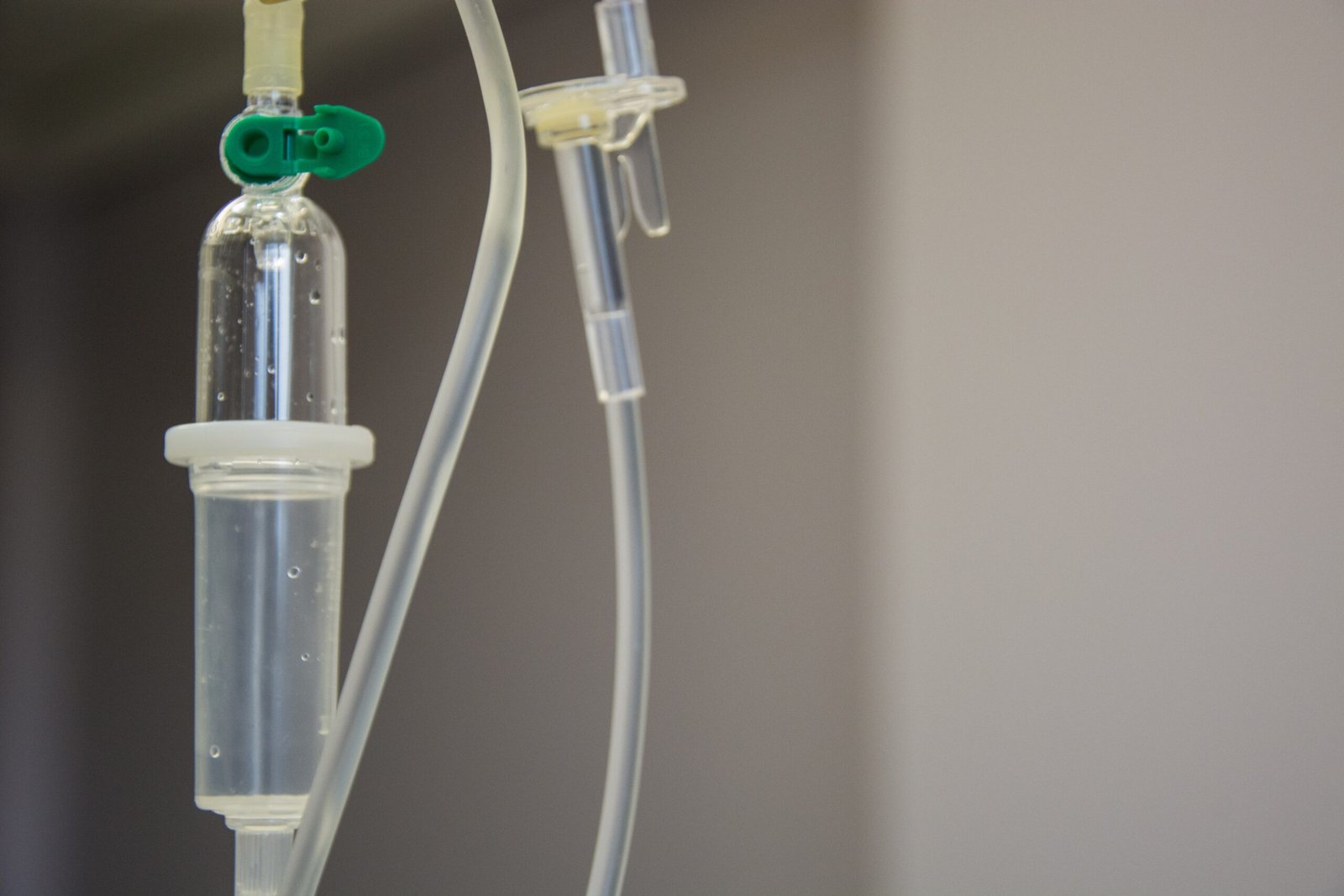Have you ever wondered if there is a connection between high blood pressure and gout? Well, you're not alone! Many people are curious about how these two common health conditions may be related. In this article, we will explore the potential link between high blood pressure and gout, shedding light on whether one condition can contribute to or worsen the other. So, put on your reading glasses and get ready to uncover the fascinating connection between these two ailments.
Understanding Gout
Definition and symptoms of Gout
Gout is a form of arthritis that is characterized by sudden and severe attacks of pain, redness, and tenderness in the joints. It most commonly affects the joint at the base of the big toe but can also occur in other joints such as the ankles, knees, and wrists. These attacks of gout can range from a few hours to several days and can be extremely debilitating.
The symptoms of gout include intense pain, swelling, and inflammation in the affected joint. The affected joint may also feel warm and appear red or purple in color. The pain associated with gout is often described as a throbbing or pulsating sensation, and even the slightest touch can be unbearable. Additionally, individuals with gout may experience limited mobility and stiffness in the affected joint, making it difficult to perform daily activities.
Mechanism causing Gout
Gout is caused by the buildup of uric acid in the body. Uric acid is a byproduct of the breakdown of purines, which are naturally occurring substances found in certain foods and body tissues. In individuals with gout, the body either produces too much uric acid or does not eliminate it efficiently.
When the uric acid levels in the blood become elevated, they can form sharp, needle-like crystals that accumulate in the joint spaces and surrounding tissues. These crystals trigger an inflammatory response, leading to the characteristic symptoms of gout.
Demographics and risk factors for Gout
Gout is more common in men than women, with men being affected at a higher rate after the age of 30. However, women can also develop gout, especially after menopause. Other risk factors for gout include:
-
Obesity: People who are overweight or obese have a higher risk of developing gout because excess weight can contribute to higher levels of uric acid in the blood.
-
Family history: Gout tends to run in families, suggesting a genetic component to the condition.
-
Diet: Consuming foods high in purines, such as red meat, organ meats, seafood, and sugary drinks, can increase the risk of developing gout. Alcohol, particularly beer, has also been associated with an increased risk.
-
Certain health conditions: Chronic conditions such as high blood pressure, diabetes, kidney disease, and metabolic syndrome can increase the likelihood of developing gout.
Understanding High Blood Pressure (Hypertension)
Definition and symptoms of High Blood Pressure
High blood pressure, also known as hypertension, is a condition characterized by elevated blood pressure levels in the arteries. Blood pressure is measured in millimeters of mercury (mmHg) and is expressed as two numbers: systolic pressure over diastolic pressure. A normal blood pressure reading is typically around 120/80 mmHg.
Hypertension is often considered a silent condition, as it usually does not present any noticeable symptoms in its early stages. However, as high blood pressure persists or becomes severe, some individuals may experience symptoms such as headaches, shortness of breath, chest pain, dizziness, or nosebleeds.
Mechanism causing Hypertension
The exact cause of hypertension is often unknown, but several factors can contribute to its development. These factors include:
-
Lifestyle factors: An unhealthy diet high in sodium, cholesterol, and saturated fats, lack of physical activity, obesity, smoking, and excessive alcohol consumption can increase the risk of developing hypertension.
-
Genetics: Family history plays a role in hypertension, as individuals with a family history of high blood pressure are more likely to develop the condition themselves.
-
Age: Blood pressure tends to increase with age, as the blood vessels become stiffer and less elastic.
-
Underlying health conditions: Certain medical conditions, such as diabetes, kidney disease, and hormone disorders, can contribute to the development of hypertension.
Demographics and risk factors for Hypertension
Hypertension affects a significant portion of the global population, with prevalence rates varying across different regions and age groups. Generally, the risk of developing hypertension increases with age, and certain populations, such as African Americans, have a higher prevalence of the condition.
Risk factors for hypertension include:
-
Family history: Individuals with a family history of hypertension are more likely to develop the condition themselves.
-
Age: As mentioned earlier, the risk of hypertension increases with age.
-
Race: Certain ethnic groups, such as African Americans, are at a higher risk of developing hypertension.
-
Lifestyle factors: Unhealthy lifestyle habits, such as a diet high in sodium, physical inactivity, smoking, and excessive alcohol consumption, can increase the risk of hypertension.
-
Obesity: Being overweight or obese significantly increases the risk of developing hypertension.

Correlation between Gout and High Blood Pressure
Existing studies on Hypertension and Gout
Several studies have investigated the relationship between hypertension and gout. Research has shown that individuals with gout have a higher prevalence of hypertension when compared to those without gout.
A study published in the journal Rheumatology found that gout patients had a 26% higher risk of developing hypertension compared to individuals without gout. Additionally, the study showed that the risk of hypertension was higher in individuals with gout who had higher levels of uric acid in their blood.
Another study published in the American Journal of Hypertension found that individuals with a history of gout had a 37% higher risk of developing hypertension compared to those without gout.
Possible explanations for the link
The exact mechanisms underlying the link between gout and hypertension are not fully understood. However, researchers have proposed several possible explanations:
-
Inflammation: Both gout and hypertension involve chronic inflammation in the body. It is thought that the inflammatory processes associated with gout could contribute to the development and progression of hypertension.
-
Uric Acid: High levels of uric acid, a key factor in the development of gout, have also been implicated in the development of hypertension. Uric acid might directly affect blood pressure regulation and vascular function.
-
Shared risk factors: Gout and hypertension share common risk factors such as obesity, unhealthy diet, and metabolic syndrome. These risk factors may contribute to the development of both conditions simultaneously.
Statistics showing correlation
Several population-based studies have provided statistics indicating a correlation between gout and hypertension. For example, one study conducted in the United States found that among individuals with gout, 74% had hypertension. This is significantly higher than the prevalence of hypertension in the general population.
Another study conducted in Japan showed that among patients with gout, approximately 70% also had hypertension. These statistics highlight the strong association between gout and hypertension and suggest that addressing one condition may have implications for the management of the other.
Role of Uric Acid in Gout and Hypertension
Mechanism of Uric acid production and excretion
Uric acid is a waste product that is produced during the metabolism of purines, which are present in certain foods and naturally occurring in the body. Uric acid is normally dissolved in the blood and excreted through the kidneys. However, an imbalance in the production and excretion of uric acid can lead to elevated levels in the blood, contributing to the development of gout and potentially hypertension.
How high levels of Uric Acid can cause Gout
When the concentration of uric acid in the blood exceeds its solubility limit, it can form needle-like crystals that deposit in the joints and surrounding tissues, leading to the development of gout. The crystals trigger an inflammatory response, resulting in the characteristic symptoms of gout, such as pain, inflammation, and swelling.
How Uric Acid might contribute to Hypertension
Elevated levels of uric acid have been found to be associated with an increased risk of developing hypertension. It is speculated that high levels of uric acid might directly contribute to hypertension by impairing blood vessel function and promoting oxidative stress. Uric acid may also promote inflammation and contribute to the development of insulin resistance, both of which are associated with hypertension.

Impact of Lifestyle on Gout and High Blood Pressure
Effect of diet on Gout and Hypertension
Diet plays a crucial role in the development and management of both gout and hypertension. For individuals with gout, avoiding or limiting foods high in purines, such as red meat, organ meats, seafood, and sugary drinks, can help reduce the risk of gout attacks. On the other hand, individuals with hypertension are advised to follow a diet low in sodium and rich in fruits, vegetables, whole grains, and lean proteins to help control their blood pressure.
Effect of exercise on Gout and Hypertension
Regular exercise has numerous benefits for individuals with gout and hypertension. Exercise can help with weight management, reduce inflammation, improve cardiovascular health, and enhance overall well-being. Engaging in low-impact exercises such as walking, swimming, or cycling can be beneficial for both conditions.
Effect of stress on Gout and Hypertension
Stress can have a detrimental impact on both gout and hypertension. It can trigger gout attacks and elevate blood pressure levels. Implementing stress management techniques such as practicing mindfulness, deep breathing exercises, and engaging in activities that promote relaxation can help in managing both conditions.
Role of Genetics in Gout and Hypertension
Genetic factors contributing to Gout
There is evidence to suggest that genetics plays a role in the development of gout. Certain genetic variations can impact the way the body produces and excretes uric acid, making individuals more susceptible to gout. Family history is known to be a significant risk factor for gout, highlighting the influence of genetic factors.
Genetic factors contributing to Hypertension
Genetics also contribute to the development of hypertension. Specific genes related to blood pressure regulation and the renin-angiotensin-aldosterone system have been identified as potential factors in hypertension. Having a family history of hypertension increases the likelihood of developing the condition.
Hereditary risk of developing both Gout and Hypertension
As both gout and hypertension have genetic components, individuals with a family history of either condition may be at an increased risk of developing both. Genetic factors that impact uric acid metabolism and blood pressure regulation can contribute to the coexistence of these conditions within families.

Role of Medications in Gout and Hypertension
Common medications for Gout and their effects
Medications commonly prescribed for gout include nonsteroidal anti-inflammatory drugs (NSAIDs), colchicine, and corticosteroids. NSAIDs help reduce inflammation and relieve pain during gout attacks. Colchicine may decrease the frequency of gout attacks when taken regularly, while corticosteroids are used for short-term management of severe gout attacks.
Common medications for Hypertension and their effects
Antihypertensive medications are often prescribed to individuals with hypertension. These medications work by lowering blood pressure and reducing the strain on the heart and blood vessels. Commonly prescribed antihypertensive medications include diuretics, beta-blockers, angiotensin-converting enzyme (ACE) inhibitors, and calcium channel blockers.
How these medications can relate the two conditions
Certain medications used to treat hypertension, such as diuretics, can increase the excretion of uric acid, potentially reducing the risk of gout. However, some antihypertensive medications, such as certain diuretics and beta-blockers, have been associated with an increased risk of gout development or worsening.
Consequences of Gout and Hypertension Co-Morbidity
Health complications of having both conditions
Having both gout and hypertension can increase the risk of certain health complications. Gout attacks can become more frequent and severe in individuals with hypertension. Uncontrolled hypertension can also lead to damage to blood vessels, heart disease, stroke, and kidney problems.
Challenges in treatment strategies
The coexistence of gout and hypertension poses challenges in treatment strategies. Some medications commonly used to treat one condition may exacerbate the other. For example, certain medications used to lower blood pressure can increase uric acid levels, potentially triggering or worsening gout attacks.
The importance of early diagnosis and treatment
Early diagnosis and treatment of both gout and hypertension are crucial to minimize the risk of complications and improve overall health outcomes. It is essential for individuals experiencing symptoms such as joint pain, swelling, or high blood pressure to seek medical attention and undergo proper evaluation for both conditions.

Preventing Gout and High Blood Pressure
Lifestyle changes to prevent Gout and Hypertension
Adopting healthy lifestyle habits can help prevent both gout and hypertension. This includes maintaining a balanced diet low in purines and sodium, engaging in regular physical activity, managing stress levels, maintaining a healthy weight, and avoiding excessive alcohol consumption and smoking.
Medical interventions for prevention
For individuals at high risk of developing gout or hypertension, medical interventions may be recommended. This can include medications to manage blood pressure or lower uric acid levels in individuals with gout. Regular monitoring and management of risk factors and early detection of abnormalities are essential in preventing and managing these conditions.
Genetic counselling for those at risk
For individuals with a family history of gout or hypertension, genetic counseling can provide valuable information and support. Genetic counselors can assess individual risk based on family history and genetics, provide guidance on lifestyle modifications, and discuss available medical interventions and screening options.
Future Research Directions
Areas of interest for further exploration
There is still much to learn about the relationship between gout and hypertension. Further research is needed to understand the underlying mechanisms, including the role of inflammation, uric acid, and shared risk factors. Additionally, studies investigating the impact of lifestyle modifications and medical interventions on the prevention and management of both conditions are of interest.
How future findings may impact treatment and prevention
Future findings in understanding the correlation between gout and hypertension may influence treatment and prevention approaches for both conditions. Insights gained from research can help develop more targeted and effective therapies, medications with dual benefits, and personalized interventions. Integration of lifestyle modifications and genetic considerations may also be emphasized in future treatment strategies.
Emphasis on public health interventions to avoid co-morbidity
Considering the significant impact of gout and hypertension on individual and public health, there is a growing emphasis on public health interventions to prevent and manage these conditions. Increased awareness, education on risk factors, and programs promoting healthy lifestyles can help reduce the burden of both gout and hypertension at a population level.
In conclusion, gout and hypertension are two distinct conditions that share common risk factors and may coexist within individuals. Understanding the relationship between gout and hypertension, including the mechanisms, genetic factors, and lifestyle contributions, is crucial for effective prevention, diagnosis, and management of these conditions. Early detection and comprehensive treatment approaches are essential to minimize complications and improve the overall quality of life for individuals affected by these conditions.

